It took us a really long time to adjust to the idea of adding another pianist to the team here at YOURACCOMPANIST. We’d had offers down through the years, but being a family business meant that we always felt that the time and dedication which went into building the library was not ever going to be a reasonable ask of another musician. The level of skill and experience required was not something which we would find easily, not to mention the degrees of trust which would need to be involved.
Towards the end of the pandemic, we were approached by an extremely friendly, highly skilled, expert accompanist, Katherine Rockhill, whose international career supporting major names had been put on hold by lockdown. The West End was closed, the tours had all been cancelled. She told us that her fingers and neurons were itching for some musical stimulus. She wondered: were we looking for anyone to join the team?
We had also been wondering if the time was right to expand the offering and finally develop the long awaited bespoke recording service which had been very much on our minds. During the last two years, the relationship has flourished and Katherine now actually does feel like a part of the family.
Together we have made hundreds of recordings to order for those looking for something not already covered by the catalogue, or seeking a fully bespoke, tailored version. Katherine’s services are limitless, and her ability to sight-read accurately and respond to musical direction is unmatched: if it can be done with a piano, and you need it fast, she is the ideal person to call upon.
A winner of the RCM Tagore medal, Katherine is among the finest musicians of her generation and our customers have nothing but praise for her skill and devotion to the task of giving them exactly what they are looking for from their bespoke recording.
Helen caught up with Katherine to chat about her experience so far of making piano accompaniments for all the lovely singers who grace us with their repertoire requests.
So, Katherine, how did you get started with all this piano playing business?
Like many people I took piano lessons as a child. Unlike many people, I absolutely loved them and totally ran with it from my earliest experiences. I had amazing teachers who guided me step-by-step all the way to the Royal College of Music in London. I can’t thank them enough for encouraging me in the way they did, and I am especially pleased that they put the emphasis on reading fluently and on musical expression.
But it can’t all have been about the teaching. You must have been a bit of a prodigy?
I guess I was able to move fast and take on a lot of the learning by osmosis: just watching and listening. I suppose I am ‘tuned in’ to music of all kinds. It was never particularly effortful, because I enjoyed it all so much. It’s something which I try to bring to my own teaching now, especially with the younger ones. Really, this stuff only goes in if you don’t have to worry too much while you’re doing it. I got really good at blocking out distractions, focusing in on the score and making that come out of my fingers. I still see it as a bit of a magic trick, or like being possessed by the composer…
What about your professional background?
I did loads of fun stuff after I graduated: I performed Tubular Bells with Mike Oldfield at Horseguards; I went on tour with Evanescence including giving performances at the Royal Festival Hall; I’ve played Zelda computer game music at Wembley Arena with the Royal Philharmonic Concert Orchestra; I’ve played for major feature films; I’ve done hand-doubling and small musical roles on various major movies and Netflix series.
I’ve recorded and collaborated with Debbie Wiseman, Tori Amos, and Susan Milan – doyenne of the flute world. I’ve performed and toured with the National Symphony Orchestra, even on the QM2. I’ve played at Sandringham, including during the Platinum Jubilee celebrations. I played keyboards in the 1998 original cast album of Andrew Lloyd Webber’s ‘Whistle Down the Wind’.
I consider myself to have been extremely lucky to have had all these amazing experiences.
You once described yourself to me as a ‘natural’ accompanist. Does that mean that you don’t like to be the centre of attention?
Oh, no: I love it! If I was being very modest, I’d say that I like the music to be the centre of attention. I’m not averse to having the spotlight, and I really love playing with orchestras when the piano is the highlight of the performance.
But I don’t see drawing the focus to myself to be my main function in a musical collaboration in very many situations, particularly during repetition or in a rehearsal, or a masterclass. In these scenarios, it’s usually about making space for each other to work comfortably on the basics, and build accuracy and interpretation.
Sometimes the direction is coming directly to me from the collaborator personally, sometimes from a third party like a director or teacher. It might be expressed as a verbal request like agreeing terms before we begin, or within the context of how they’re communicating the music, or it might be all in their body language or facial expression. I look out a lot for the signs of a singer or wind player running out of air and needing either space to take a breath, or to conclude the current phrase a bit sooner. The skill level of the musician does dictate a lot and I enjoy working with performers at all levels.
There are things I just seem to become aware of when I tune into what the performer I’m working with is doing, some of it is conscious, but by no means all of it. Auditions are different again, because you need to let people show what they can do, but also give the panel a consistent underpinning for making decisions. That’s a careful balance.
I think all of that adds up to what I meant by ‘natural’ accompanist: I just sort of know when people need me to be consistent and do exactly the same thing over and over again, and when I can introduce some flex and go with the flow to bolster the sense of what’s happening in the communication, or help out my partner, or serve the music.
What about ‘accompanying the silent singer’ as we call it? You know, playing for the tape when there is no singer in the room?
There are two things which happen to me when I’m recording accompaniment tracks: I find that what I’m doing is actually accompanying a delightfully idealised version of the singing in my own head and, in my own mind, I have some really amazing technique, stuff that I could never do if I was actually singing out loud. I know this because I often sing through the material after I’ve recorded to check if the breathing is likely to work, and my real voice is never as good as I was just imagining! It really has redoubled my appreciation of the skill and athleticism of trained singers.
What about other instruments?
Sometimes I get to imagine that I’m an expert flautist, violinist or guitarist, or trumpeter. It’s so fun to be able to envision myself playing all these amazing instruments at an expert professional level, but it’s total fantasy compared to the physical reality and the technical demand of actually playing them. I become delightfully deluded for the course of the recording.
The other thing which happens is that I turn into a bit of a human metronome. If there’s one thing which has to be right in recorded accompaniments, it’s consistency in the tempi, or at least clarity and predictability in things like ritardandos and accelerandos. It helps enormously when the client – or at the very least the composer – supplies the detail of how they would like things to be done.
There are big challenges for the usability of the material at times when the piano part drops out and the person practising with the track has to join up again when the piano re-enters. The very least I can do for them then is to count consistently and accurately through my silent bars.
But recording wasn’t new for you?
I’ve done a fair bit of recording down through the years, but more the sort of thing which could be considered a live performance, captured – like those amazing Bach cello suites I worked on using Schumann’s piano accompaniment. That was a completely analogue experience, and resulted in a stunning 5 LP box set, which is already a rare collector’s item.
Making tools for people to use for performance preparation, or as a backing track for performance is a very different thought process.
Let’s talk a bit about what else you’re up to at the moment
I am thrilled to be working on Matilda the Musical at the Cambridge theatre where I’ve recently been asked to do some MDing, and I completely love that. Those are skills of keeping everyone together, while still playing the keyboard and cueing in my colleagues. It’s a rush, I can tell you, and the music is some of the cleverest, most inspiring I’ve ever worked on. I totally love it, and consider it to be a huge privilege to be involved in any way. We’re actually rehearsing the new cast at the moment, and that’s a really fun thing. The children are extra special. It’s highly selective and a lot of pressure for them to be under, but they rise to the occasion so well. It’s a joy to see.
Other regular engagements are tours and performances with Katherine Jenkins, who is really good fun to travel with, and she performs in amazing places, and herself collaborates with other big names who it’s just great to be around. And I still play regularly as a piano soloist with the National Symphony Orchestra. In fact we just got back from Saudi where we did live accompaniment for screenings of Harry Potter. That was all deliciously keyboard centric, with some really challenging material for me to get my teeth into. We’re going on the QM2 again in Autumn, reprising Rhapsody in Blue. I really can’t wait for that.
Ah, and I also teach music in a prep school.
Phew! How on earth do you have time to also fulfil YOURACCOMPANIST custom orders? You do it so fast and everyone is always completely delighted with your productions!
I am a morning person. I can’t deny it. There’s something just so lovely about sneaking down early to my instrument. It’s something I’ve always done, but with the YOURACCOMPANIST bespoke recordings, there’s a real purpose to it, and that’s fantastic. I always think: I’m doing this for someone who really needs it and appreciates it, so it just motivates me hugely.
There have been times when I’ve just had to be away, and much depends on when the customer needs it by. I think we’ve only had to turn down one job because we couldn’t make it work. That’s not bad in two years!
What do you enjoy most about working with us?
I must say that the YOURACCOMPANIST customers always ask for delightfully varied and challenging material. Once I know what’s on my music stand for the day, I just work through it until I’ve got it in the bag, and feel that I’ve done it the way they want it. I’m always surprised by how few changes are requested.
I suppose it is a good fit because I am quite quick at the preparation, recording and production side these days, so it really doesn’t take me very long to do the work, which in turn means it doesn’t have to be super expensive for the customer. It’s rare that I have to agonise over something, and I love the variety and scope of what I’m doing, and the making-people-happy element is more than a bonus! So, yeah, getting up early and organising myself around the requests is not a hardship. Far from it.
Making note-learning materials is always a real joy for me. Some people might think it’s boring, just “note-bashing” for choir, but to be honest, it gives me real insight into the composer and what they were doing with the voice leading. I find it absolutely fascinating to break it all down and, again, I just know that the choir will sound so much nicer if everyone is completely secure in their lines. I enjoy helping people to achieve things that they might not otherwise.
The same goes for the whole opera roles we’ve been doing lately. It’s amazing to trace the music through the piece from the perspective of a single character. It gives me a completely different slice through the composition. I love it when I get to do those.
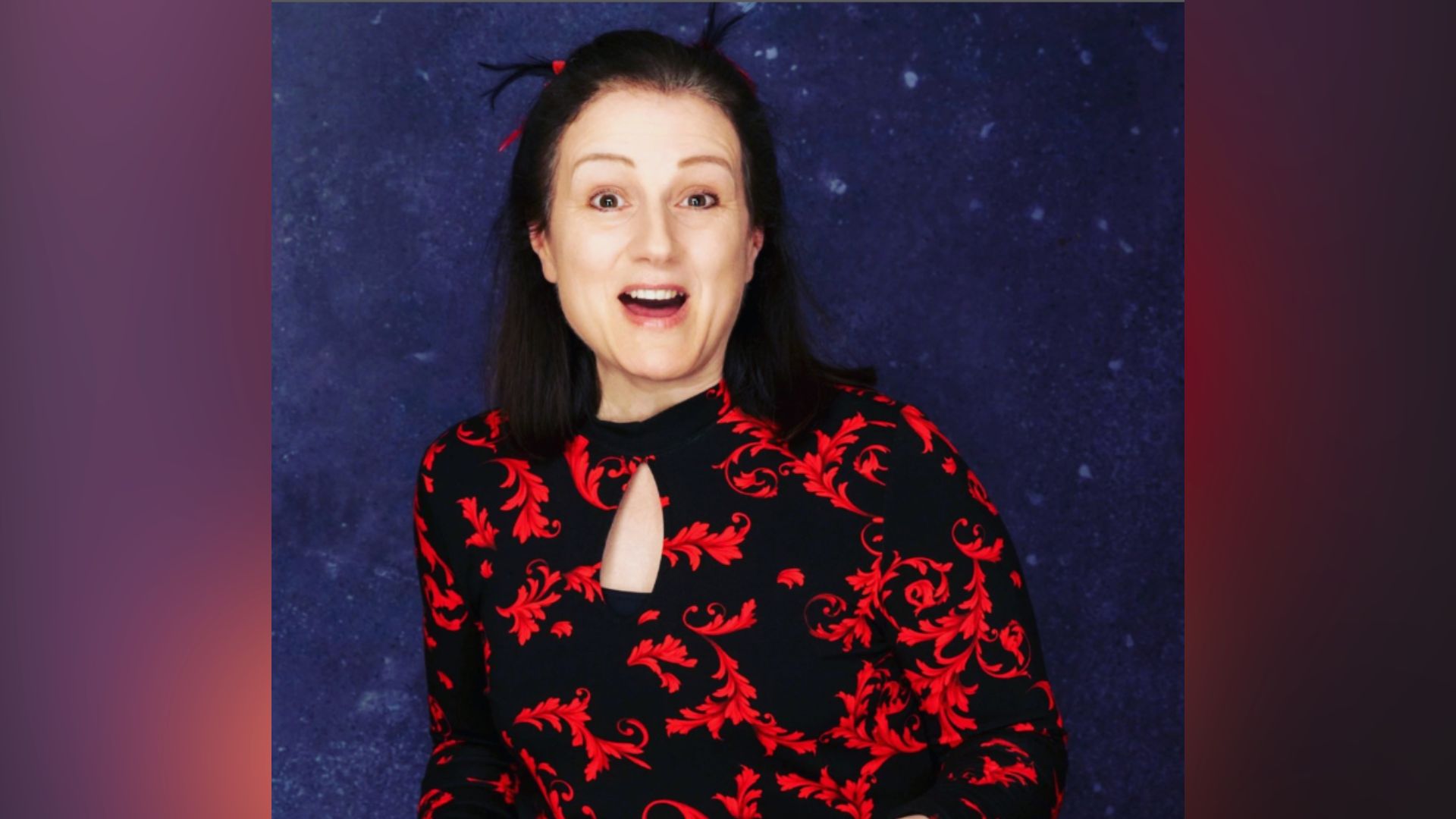

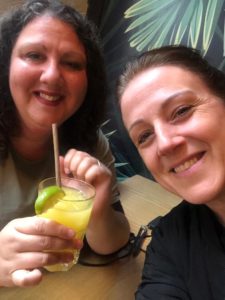
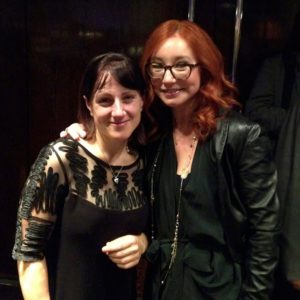
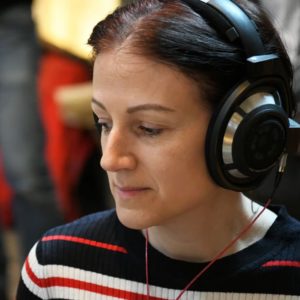
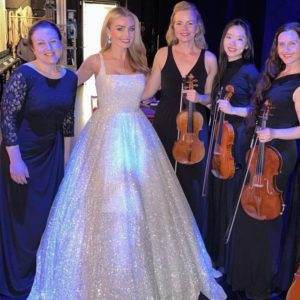
Share